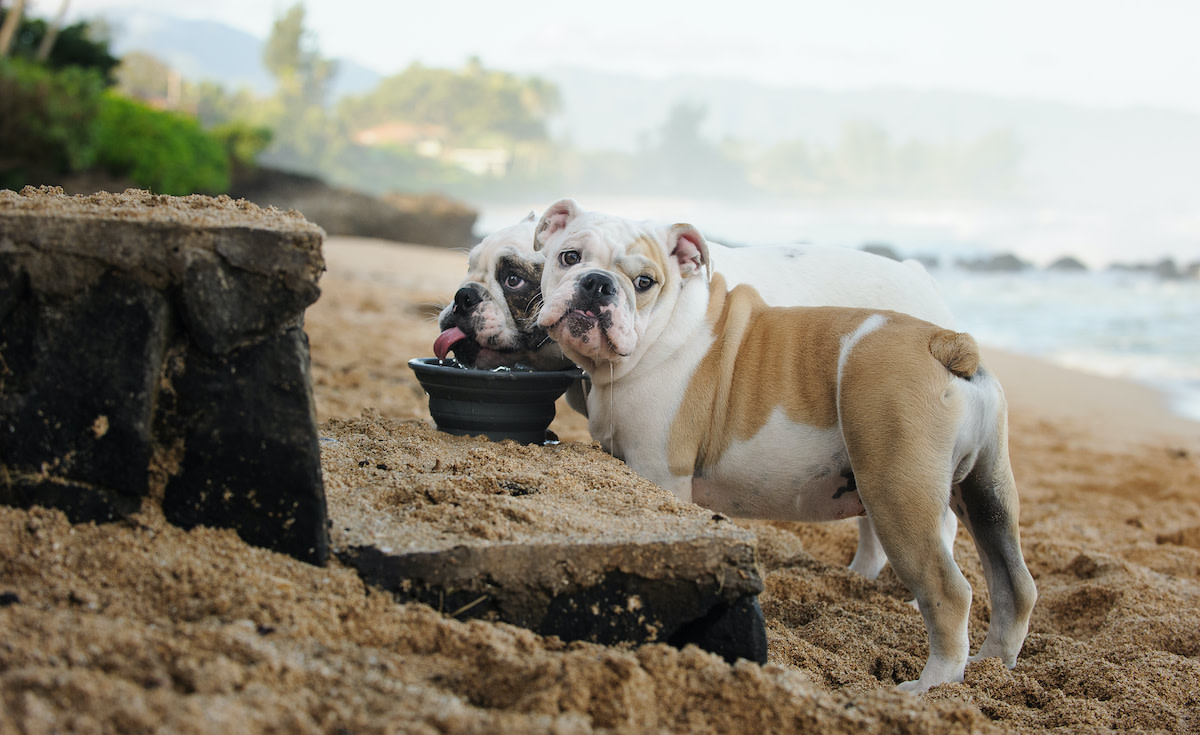Can Dogs Drink Salt Water? 3 Tips to Curb Salt Water Drinking
Written by MasterClass
Last updated: May 11, 2022 • 2 min read
Salt water is not good for your dog’s health. Learn why dogs can’t drink salt water and discover tips to keep your dog safe.
Learn From the Best
Can Dogs Drink Salt Water?
Dogs cannot drink salt water. A few sips of salt water can cause your dog to develop gastrointestinal issues, such as diarrhea, vomiting, and dehydration, and excessive salt water ingestion can be fatal. The high sodium concentration interferes with the fluid balance in canines, causing their cells to expel too much water. This form of salt water poisoning can result in kidney damage, seizures, brain swelling, and death.
How to Prevent Your Dog From Drinking Salt Water: 3 Tips
Try these tips to prevent your dog from drinking salt water the next time you’re at the beach:
- 1. Give your dog breaks from the ocean. If your dog likes to swim, break up their playtime into fifteen-minute intervals. Giving your dog breaks from the water makes it easier to monitor their behavior and reduces the risk of drinking seawater.
- 2. Offer your dog fresh water. Bring a water bowl and large bottle of fresh, clean water to give your dog throughout the day. Keeping your dog hydrated discourages them from drinking the ocean water.
- 3. Provide training. Adopt different training techniques to discourage your pet from drinking salt water. If you catch your dog drinking salt water, use the “no” command to express dissatisfaction. It’s important to discipline your dog right after they drink the water so they understand it’s bad behavior. As your dog learns not to drink the salt water, reinforce positive behavior by encouraging them to play.
3 Symptoms of Salt Water Poisoning in Dogs
If your dog consumes large amounts of salt water, monitor them for these symptoms of salt toxicity:
- 1. Constant urination: When your dog consumes excessive salt water, their body tries to reduce its salt content through urination. Constant urination is a sign your dog’s sodium levels are too high.
- 2. Muscle spasms and fatigue: Salt water poisoning can negatively affect your dog’s muscle function. As the levels of salt increase in your dog’s blood, the moisture in their muscles decreases, resulting in stiffness, seizures, and overall fatigue.
- 3. Severe dehydration: The high salt levels in your dog’s body can also trigger side effects associated with severe dehydration. Confusion, excessive thirst, nausea, and odd behavior are all signs of dehydration from high sodium levels.
What to Do if Your Dog Drinks Seawater
If your dog drank small amounts of salt water, monitor your pet for mild gastrointestinal symptoms, such as diarrhea. If your dog ingested too much salt water and begins developing symptoms of salt water poisoning, seek medical attention immediately. It’s essential to get care at the onset of symptoms to restore electrolyte and water balance.
Before Sharing With Your Pooch
Certain foods and beverages can cause adverse reactions in canines, so always consult your veterinarian to determine whether it is safe to add these foods to your pet’s diet. This article is for educational and informational purposes and is not a substitute for medical or dietary advice.
Want to Learn More About Training the Goodest Boy or Girl?
Your dream of having a dog who understands words like “sit,” “stay,” “down,” and—crucially— “no” is just a MasterClass Annual Membership away. The only things you’ll need to train up a well-behaved pup are your laptop, a big bag of treats, and our exclusive instructional videos from superstar animal trainer Brandon McMillan.
